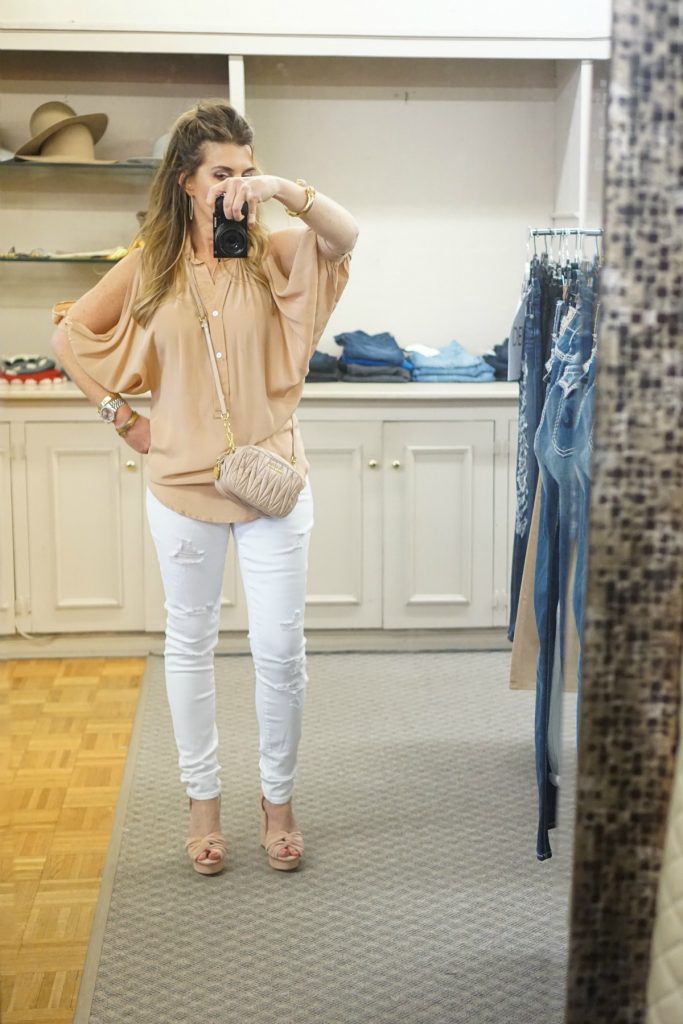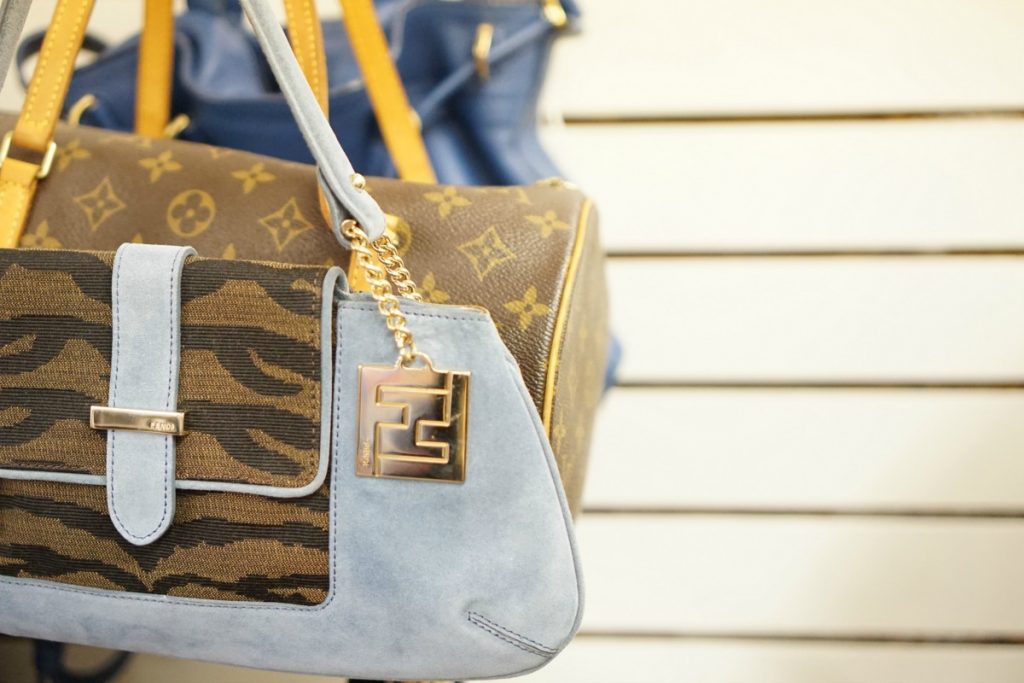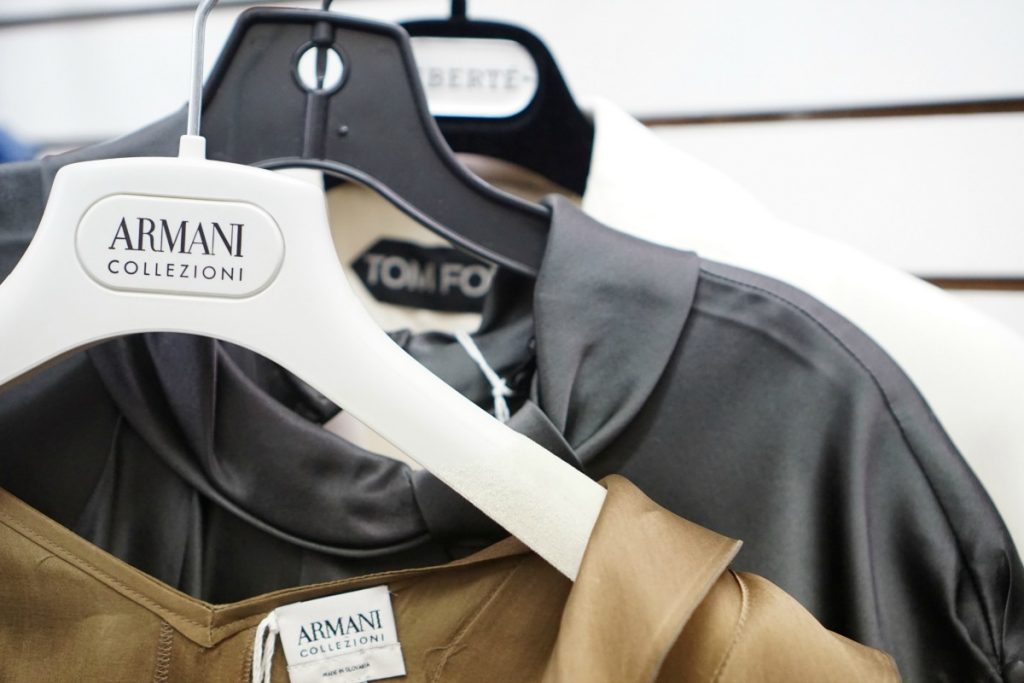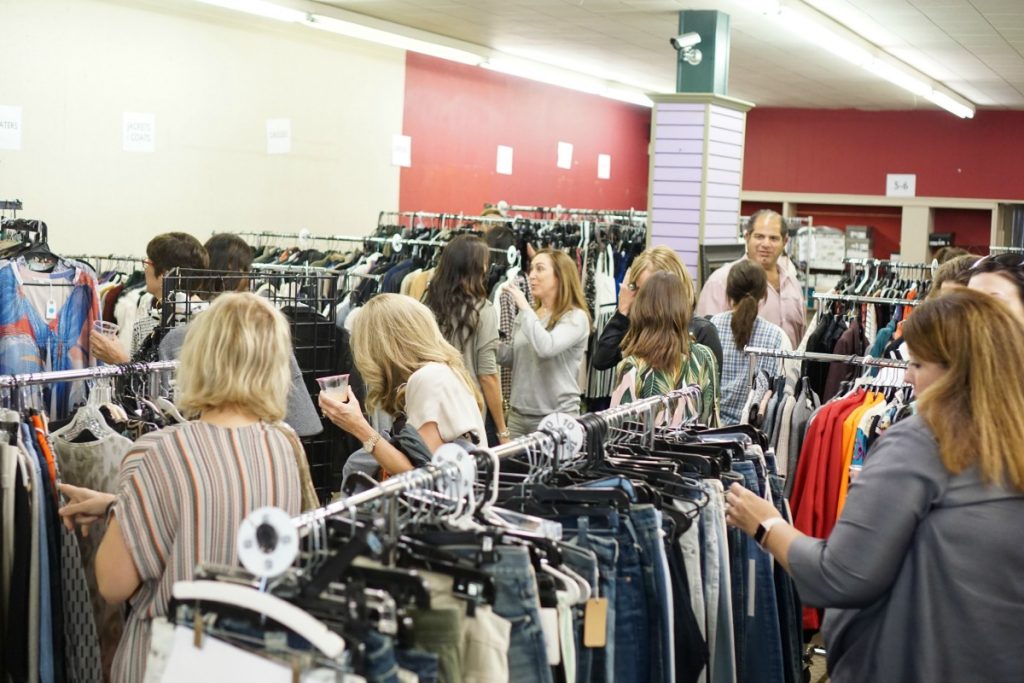Control and shopping in the same sentence? I think that sounds like an oxymoron.
Would you ever think of shopping as an addiction? Some over eat, some smoke, some drink, some gamble, and some shop. I can say, while there was a time I used to LOVE to shop, I think the older I’ve gotten, the better I’ve gotten on shopping smarter. It never was an addiction. But impulse shopping? Yes, that’s one battle I’ve had to overcome. What’s the harm in impulse shopping? The biggest harm is hurting your finances. It can be exciting to go shopping and purchase something new, but the thrill doesn’t last for long. It doesn’t take long before you need to purchase something else to capture the same feeling. It’s that you that thrill of the impulse that will get you ever time.
Now… I will say how ironic I share this, just after a weekend FULL of shopping as some fabulous gals put on the first annual Boutique Warehouse Sale OKC. I helped promote it, you may have seen a few videos HERE and HERE … and I helped them raise money by SHOPPING too! (#guilty). However, this was a one time event that I knew wouldn’t be again… at least for another year, right? (so my justification goes!) Are we shopaholics? Maybe…. 🙂




But in all seriousness…
Let me ask you…
Do you go to Target for a few grocery items, paper towels and end up with a shopping cart full of clothes?
Do you happen across an amazing sale and realize you can use all of these candles as gifts at Christmas so you end up buying 10 of them? All to forget you bought them 8 months ago?
Or maybe do you go on a mission for one thing at the mall and end up with items that had nothing to do with what you originally went for?
Let’s try to get a grip. How can we control impulse shopping?
- Have a mandatory wait period. Some states have a waiting period to purchase a firearm. You can impose your own waiting period that applies to any non-essential purchase. Dying to purchase that new pair of shoes or the latest iPhone? Make yourself wait. Impulsive shopping is just that – impulsive. You might make a different decision if you give yourself a little time. How long do you have to wait? Anywhere from 48 hours to 30 days. It’s up to you. I always say if I can’t stop thinking about it, it was meant to be. Impulse purchases are driven by your desire at that MOMENT. So if you’re still thinking about that fabulous bag a week later and resisted that temptation initially, I say, that’s not impulse. Instead that’s something you genuinely desire.
- Shop when you’re in a good mood. Many impulsive purchases happen during times of depression, grief, anxiety, or other stressful emotional states. No one ever made themselves feel better long term by purchasing something. That bit of satisfaction didn’t last for long. Shop when you’re in the best possible mental state to resist the urge to splurge.
- Determine when you’re most likely to make an impulsive purchase. Is it mood-related? Is it on payday? Do you purchase unnecessary items when you’re bored or lonely? When you’re with a particular friend? Think about it. Why do you make these types of purchases and when?
- Limit unnecessary purchases to things you can return. How many times have you purchased something only to feel let down afterward? Make it easy to return the item and get your money back. Be careful when unboxing anything you purchase. Save all the packaging and avoid damaging the item. Save your receipt, too. You might want to return the item in a week.
- Make a list of the things you need and stick to it. When you want to purchase something, see if it’s on your list. Take inventory at home and determine what you need. Start making a list today and keep it with you whenever you leave the house.
- Avoid shopping online. Unless you need the item and it’s cheaper online, avoid purchasing anything online. It’s too easy to sit on the couch with a good movie and allow your shopping instinct to run wild. CLICK… ADD TO CART. That can happen mindlessly and before you know it, you’ve gotten 3 dresses, 4 tops, a few pair of shoes and a bag all because it was take an additional 10% off. Did you really need them all? You know you’ve done this, right? ha!
- Keep your money where you can’t access it easily. Move any excess money out of your checking account as soon as you’re paid. Move it into an account that doesn’t include a debit card. You’ll still have access to the money for emergency purchases, but it won’t be easy to splurge unnecessarily.
Whether you enjoy the thrill of a good sale, buying things because they are just so irresistible, or just shopping because it “feels good”, you need to identify those signs of impulse shopping and know how to control it. For the sake of your future savings and your diminishing bank account. Use some of my tips I mentioned above to gain some control.
What are some of the ways you can remember impulse shopping?









Leave a Reply